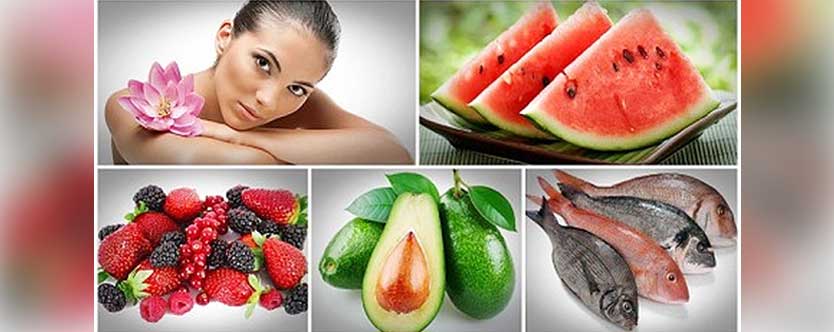There are no short cuts to creating an anti aging platter, but yes there are some foods that are known to promote good health.
[the_ad id=”6084″]Also, there are some basic rules that help us maintain good health and vitality. The basic rules that we should stick to are :
1. Eating smaller portions in each meal.
2. Choosing nutrient rich foods from all food groups so that our daily allowances are fulfilled without compromising on the calorie targets.
3. Exercising to keep our bodies in shape and strong.
4. Wearing sunblocks to protect from sun’s UV rays.
The following foods have multiple health benefits:
Berries. Being a rich source of antioxidants, such as flavonols and anthocyanins, berries promote cell health and can protect against diseases, like cancer and diabetes. They are also rich source of vitamin C. The darker the berry, the richer it is in antioxidants.
Oats and Whole grains such as shredded wheat, barley, brown rice. They are low-glycemic and vitamin rich. They also have a natural plant chemical that helps prevent damage to skin cells and soothes skin irritation. Eating whole grains has also been linked to a lower risk of heart disease, stroke and diabetes.
Avocados. Avocados are filled with a healthy type of fat, monounsaturated fat, which helps your skin stay hydrated. That same healthy fat can also help you absorb some vitamins and nutrients that your skin needs.
Broccoli, cauliflower are an excellent source of the skin- friendly vitamins A and C, as well as folate. The vitamin C promotes collagen and these veggies may help prevent sun damage.
Salmon. Eating fish is one of the best ways to get healthy omega-3 fats in your diet. Recent studies have suggested that omega-3s, especially from fish, may keep skin cancer cells from growing and spreading.
Grapes. Red wine in moderate amount contains Resveratrol, which comes from the skin of grapes, counters inflammation, slows the aging process, plus it may fight the effects of UV light and sun damage.
Dark chocolates. Cocoa beans, from which chocolate is made, have a higher concentration of antioxidant flavanols, that help reduce inflammation of the skin caused by exposure to UV light.
Beans. They are an excellent source of low-fat protein, especially for those who don’t eat meat. They also contain fiber (which can help lower cholesterol), are rich in antioxidants, and are full of all sorts of vitamins and minerals, including iron, vitamin B and potassium.
Vegetables. The best vegetables for finding antioxidants are green, leafy vegetables such as spinach and kale. Two of the antioxidants found are lutin and zeaxanthin, which have also been shown to protect against the negative effects of UV exposure.
Nuts. Apart from the protein they provide, nuts also contain omega-3 fatty acids, which are great for heart health. They’re also a good source of vitamins and minerals, including potassium, which helps lower blood pressure; vitamin E, which helps prevent cell damage; and calcium to maintain strong bones.
Garlic. Its anti-aging benefits include lowering cholesterol and blood pressure, reducing inflammation, and protecting and maintaining cell health. One of the biggest benefits of eating garlic is that it’s a natural way to boost the immune system and shield against cancer.
Source:

